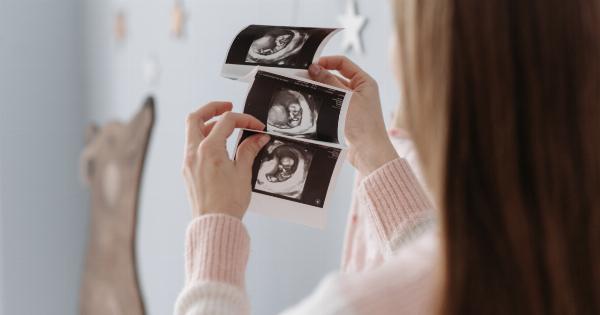What used to be an uncommon occurrence is now more common as women wait longer to have children.
Pregnancy after the age of 35 is becoming more and more common as women focus on building a career and establishing financial stability before starting a family. Although pregnancy after 35 can be perfectly healthy, it does come with some risks. In this article, we will explore the potential risks associated with pregnancy after 35 and discuss what women can do to stay safe.
Increased Risk of Chromosomal Abnormalities
One of the main risks of pregnancy after 35 is the increased risk of chromosomal abnormalities in the baby. As women age, there is a higher likelihood of chromosomal errors occurring during fertilization.
The most notable of these abnormalities is Down syndrome, which occurs when there is an extra copy of chromosome 21. Women over the age of 35 have a greater chance of having a baby with Down syndrome than women under the age of 35. While prenatal testing can detect chromosomal abnormalities, these tests also come with some risk.
Increased Risk of Gestational Diabetes
Gestational diabetes is a type of diabetes that develops during pregnancy and usually goes away after the baby is born. Women over the age of 35 are at an increased risk of developing gestational diabetes during pregnancy.
This is because as women age, their bodies become less sensitive to insulin, making it harder to regulate blood sugar levels. Gestational diabetes can lead to several complications, including preterm labor, high blood pressure, and a larger than average birth weight for the baby.
Increased Risk of Pregnancy-Induced Hypertension
Pregnancy-induced hypertension, also known as preeclampsia, is a condition that occurs during pregnancy. It is characterized by high blood pressure, protein in the urine, and swelling in the feet and legs.
Women over the age of 35 are at an increased risk of developing preeclampsia during their pregnancy. This condition can cause severe complications for both the mother and the baby, including premature delivery, low birth weight, and even death in some cases.
Increased Risk of Premature Birth
Women over the age of 35 are also at an increased risk of premature birth. Premature birth is defined as giving birth before 37 weeks of gestation.
This can lead to several complications for the baby, including immature lungs, respiratory distress syndrome, and even death in some cases. Premature birth can also lead to several long-term health problems for the baby, including cerebral palsy, learning disabilities, and vision and hearing problems.
Increased Risk of Multiple Gestations
Women over the age of 35 are also at an increased risk of having a multiple gestation pregnancy. This is because as women age, their bodies are more likely to produce multiple eggs during ovulation.
Multiple gestations can lead to several complications for both the mother and the baby, including premature delivery, low birth weight, and developmental delays for the baby.
Staying Safe During Pregnancy After 35
While there are some risks associated with pregnancy after 35, there are several things women can do to stay safe. The first step is to receive early and regular prenatal care.
Regular appointments with a healthcare provider can help detect any potential complications early on and help manage them. Women over the age of 35 should also consider seeing a high-risk pregnancy specialist for additional monitoring.
Eating a healthy diet and getting regular exercise can also help reduce the risk of complications during pregnancy.
Women over the age of 35 should also be aware of their increased risk of gestational diabetes and should be sure to follow a healthy diet and exercise routine to help manage blood sugar levels.
Lastly, women over the age of 35 should be sure to get adequate rest and manage stress levels during their pregnancy. Stress can increase the risk of complications during pregnancy, so it is essential to find ways to manage stress effectively.
Conclusion
Pregnancy after the age of 35 may come with some risks, but with proper care, women can increase their chances of having a healthy pregnancy and a healthy baby.
Regular prenatal care, a healthy diet, regular exercise, and stress management are all essential steps to take to reduce the risk of complications during pregnancy. While the risk of complications may be slightly higher for women over the age of 35, it is still possible to have a successful pregnancy and a healthy baby.






























